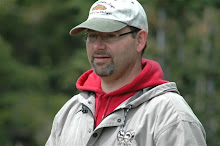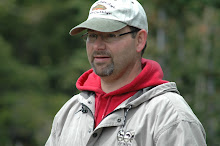From Disney to Discovery
Our family just arrived home from Spring Break after visiting the Mouse's House, in Orlando, Florida. We all had a great time, but I must confess, from a Christian perspective, the world as we know it coming about by chance gets old. We went on the Spaceship Earth ride, in EPCOT and had our faith in God’s word challenged, Disney style, with 100% presumption of old earth theory. How do we respond to the predominant theories of our day? Do you believe in a literal 24 hour day of creation, or can the Hebrew word for day, yom, also be interpreted to be a long period of time, or an age?
This is certainly not a new question, but most very good questions have been asked before. This question makes for a great debate, which often pit’s geology and astronomy against the biblical account with such authority that we Christians begin to question what Genesis 1 and 2 really mean. This often results in some kind of theological compromise by Christians, like Theistic evolution- The belief that God does exist, and that God must have created things by natural means over a great period of time.
At it’s center is the problem one faces in reconciling several scientific discipline’s “old earth” theories, and a biblical young earth presentation of earth history. I happen to side on the 24 hour day side, simply because it makes a lot more exegetical sense to me despite many theologians who interpret the Hebrew word the other way. Let me explain why I take this position. There was evening and there was morning, the first yom. Either there was another light source that God used in the Genesis account, or we are operating on the same system that we are accustomed to today. The solar and lunar cycles are in place already in Genesis 1.
Then do I just ignore geology, physics, fossils, the expansion of the universe and all the natural processes that have been demonstrated as scientific fact? No. I don’t. I also don’t ignore God. Let me explain what I mean. Let’s start with Genesis. What does Genesis mean? Beginning right? But, not just the beginning…In the beginning, God. What happens when you take God out? Something that we often forget when it comes to modern science is that it works from a naturalistic philosophy that predates Darwin. It is the belief that God does not exist; there is no supernatural, outside or inside force that affects natural processes. Darwin’s theory was a result of this philosophy in biological systems, but Geology, Astronomy and other disciplines have also been impacted by it.
To put it another way…they don’t factor in the miraculous (supernatural) at all. If you don’t factor in God, then you must be able to explain how something has transformed to its current state by random chance. This was not always the case in the scientific community. There was a time, when scientists tried to puzzle out the mysteries of the micro and macro worlds to learn more about their creator. But, we live in an age where the predominant presumption in science is that God does not exist. When this shift took place the primary presumption- that God exists, was rejected and then replaced with the Natural Sciences. We now have museums of Natural Science and History. What’s the difference? All scientific and historical explanations of ourselves and the world around us is limited to natural reasoning.
A basic principle in the scientific method is that if you have a faulty presumption, you will always have a faulty conclusion. That is why it is always dangerous to base one theory upon another. Theories should always be founded on observable facts, not other theories- which by very definition have not yet been proven. Take for example the theory of evolution, and the second law of thermodynamics. The former is yet to be proven; the latter has become a law. Yet, scientists continue to advance the theory of evolution, while ignoring a scientific law, because the theory fits their presupposition- no God factored in.
In Natural systems (Nature), we observe processes and make predictions into the future and past based on those processes. This is very logical. So what happens when you observe and prove the second law of thermodynamics (put into layman’s terms- everything over time breaks down into a more chaotic system until finding a balance), as was first established in 1824. What impact does that have on your observation of so many complex systems that exist? Let’s explore together the two possibilities. This law, without the existence of God, should reveal that the older the cosmos, the more disorder or chaos there should be? This law, with the existence of God, might attribute the power (or energy) of God, in the giving of order in a universe that would break down without it.
So if you don’t believe in God how did our own bodies and all the complex systems around us get so ordered? Answer- Time. Lots and lots and lots of time! Because order should not be observed, because we should not exist, it would take a very long time for it to happen in a random system…like a miracle (but not like a miracle performed by God, because God does not exist) but, a miracle just the same. So, how much time would it take? 15 to 20 Billion years. While the number is much debated, it is debated in the Billions, not thousands. Life as we know it with all it’s complexity should not exist at all in a natural system, so you have to allow for huge quantities of time and chance for it to randomly occur.
I’d like to get back to God for a moment. If you believe in God, you believe in an outside or inside force that can impact natural processes. Take for example Jesus healing someone. Our hospitals are filled with people who we can expect to get well, as the processes of healing occur. Our bodies fight infection, gain strength, and recover…over time. Jesus said, take up your mat and walk. And the lame man walked. We call this a miracle. A doctor operating on someone’s cataract and giving them sight is not a miracle, even though we might use the expression. A miracle is a person going from blind to sighted, without the hand and expertise of a surgeon in real time. Something supernatural, from outside the system has changed the natural course of things.
The Bible unmistakably describes the character of God and his attributes. God is the creator. God is the sustainer. God rules over all things, and God from time to time alters the design he created in what we call miracles. From a purely scientific perspective, our very existence is a miracle. Christians simply attribute the miracle to God instead of luck. Rather than believing (having faith that) against all logic, we are the result of astronomical odds in a universe ordered by random events, we simply believe in God.
With this argument laid out for you, let me ask you a question. If you had the ability to create, anything you wanted, at any time you wanted, simply by saying the words, (Genesis account- and God said, let there be…) would you take 15 billion years to do it? Time itself is a measurement that we have been given by God, for scripture teaches us that God is eternal. In Genesis, God provided something to order our lives: light to rule the day, and darkness to rule the night… there was evening, and morning, the first yom (day). To God a day is like a thousand years, because God exists outside of our parameter, but to us a day has been ordered.
When God created Adam, did he begin with a bacteria, fungi, plankton or an amoeba? No, he took all the materials from the dust of the earth and made a man. Not, an infant, not a boy, a man. Why is this significant? God created sustainable systems in the beginning. When we observe the rocks of the earth and the stars in the sky with the assumption that they were formed without miracle, we can only do it by attributing processes that take much more time, like the healing process within the human body. In Hebrews 1:1-3 we not only find that God created, but that God also sustains all things through the power of his word. That is why certain scientists who believe in the power of God, like Einstein, when discovering predictable, yet invisible power packets inside of unseen atoms, (quantum mechanics, or quantum theory), believed he was discovering a mystery of God.
If you are frustrated as a Christian, at the exclusion of God in science, I would encourage you to stand firm. The origin of science was founded on the search for truth. Christians do not have to compromise their faith to find it, for God’s word is truth. The evidence of God, and his divine attributes are clearly seen, even if the predominant cultural view is contrary to it. There is a reason, despite the fact that evolution and natural sciences are taught in all our public schools, and displayed over and over till nausea strikes on the National Geographic and Discovery Channels that over 80% of the people in our nation still believe in God! Natural sciences do not provide very convincing answers to life’s biggest questions. The irony is that if Science was purely a search for truth, without any error, it would discover…God.
How do you stand up to the challenge?
Wayne's Worldview is a place to share my unique perspective of the world as formed from my interpretation of the scriptures and my experience as a Christian. As a pastor, I am asked a lot of questions about current issues, life dilemmas, personal problems, politics, biblical interpretation...etc.I offer these "How I see it" thoughts in effort to challenge people to think about their worldview, and to stimulate good conversations that will help us become more whole.
Welcome to the conversation.
Welcome to the conversation.
Wednesday, April 1, 2009
Subscribe to:
Post Comments (Atom)
.jpg)

thanks for this perspective Pastor Wayne. Amy is right... It is difficult for you to shut it down during your "downtime"... LOL
ReplyDeleteIn addition to suffering I would add that this continual attack on Christians view of creation is a form of suffering... Frustrated indeed... Yet, one can only get a touch of what Jesus must have felt in the days leading up to his death on the cross. Talk about rejection.
I find comfort in I Peter 4. beggining at verse 12. Picking off a few of the verses that prepares us that the world will continue to insult us as it rejects our Lord.
I am not suggesting we be passive, but be prepared to give an account and a reason for our hope...
I am thankful for your comments and steadfastnest. Let us continue to commit ourselve to God through Jesus Christ and go out and continue to do good.
Rudy
OK, Wayne, how about this. Genesis 1:1 reads "In the beginning, God created the heavens and the earth. The earth was without form and void, and darkness was over the face of the deep. And the Spirit of God was hovering over the face of the waters.
ReplyDeleteWe don't read about the first day until verse 5. Is it possible that we do have an old earth (Genesis 1:1) but that we didn't start having days until God decided to create them and only then, did we have days represented by 24 hour periods?
Thoughts? (I don't necessarily believe this, I just want to know what you might think?)
Jason Kanz